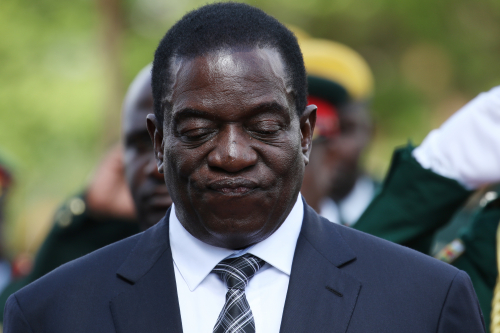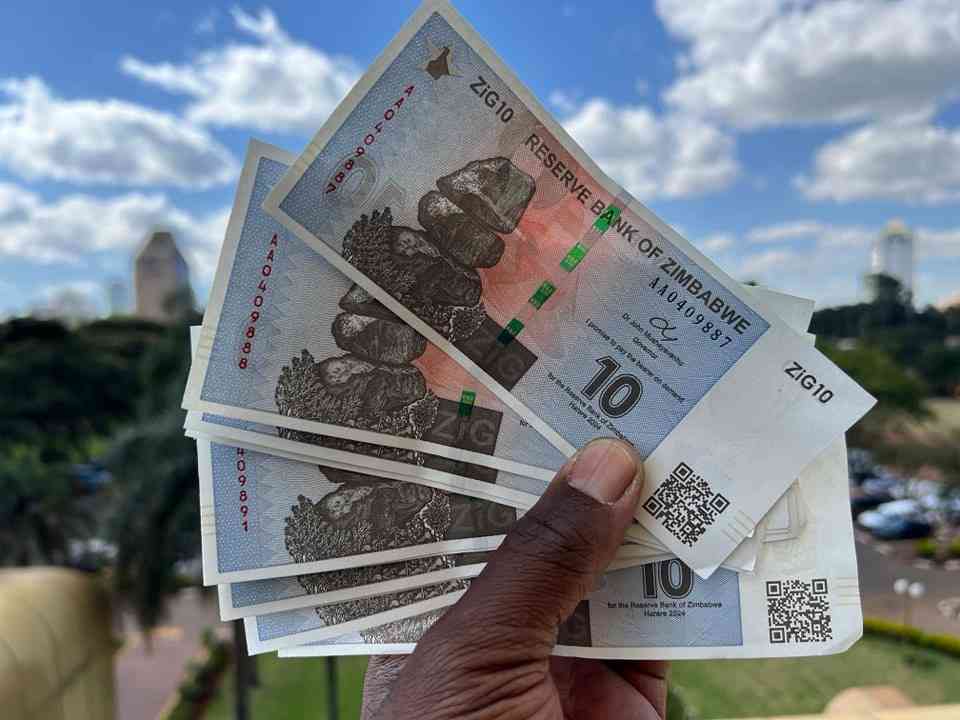
BY PRAISEMORE SITHOLE
CORRUPT cartels have captured key government institutions including the police and judiciary, making it difficult to tackle graft or bring them to book, Prosecutor-General (PG) Kumbirai Hodzi said yesterday.
The southern African country loses US$1 billion every year to corruption, according to anti-graft watchdog, Transparency International but Hodzi, who was appointed by President Emmerson Mnangagwa in July 2018, laid the blame on the growing sophistication of cartels which he said were responsible for most of the high-level corruption.
“The nature of the cartels cuts across all the institutions, media, legal profession, judiciary, National Prosecuting Authority and all other institution that are mandated to fight corruption, even members of the public and businesspeople, they are also involved in these cartels,” he told participants at a Political Actors Dialogue (Polad) economic thematic committee capacity-building workshop in Bulawayo.
When Mnangagwa took over as President after the late Robert Mugabe was ousted in a coup in 2017, he promised to stamp out graft that had become endemic under his predecessor, but critics accuse him of lacking the drive to carry out reforms needed to help Zimbabwe recover from its worst economic crisis in a decade.
Senior officials at the Zimbabwe Anti-Corruption Commission (Zacc), which Mnangagwa appointed in July last year, told NewsDay at the weekend that over 100 dockets on corruption cases were being left to rot at the National Prosecution Authority (NPA) headed by Hodzi.
But Hodzi said the problems were deeper than what most people imagine and implicate many politicians from the political divide.
“The cartels are well organised, they are organised in the sense that their organisation is deliberate and meant to frustrate the discovery of their corruption. They make sure they are not discovered and frustrate the prosecution and the work of law agents,” Hodzi said.
- Chamisa under fire over US$120K donation
- Mavhunga puts DeMbare into Chibuku quarterfinals
- Pension funds bet on Cabora Bassa oilfields
- Councils defy govt fire tender directive
Keep Reading
The PG’s disclosure came after the ruling Zanu PF party’s top decision-making organ, politburo, last week suspended its youth secretary Pupurai Togarepi, his deputy Lewis Matutu and national commissar Godfrey Tsenengamu for convening a Press conference where they accused businessmen Kudakwashe Tagwirei, Billy Rautenbach and Tafadzwa Musarara – all allies of Mnangagwa – of high-level corruption and running cartels which they said were sabotaging the economy.
Hodzi said there was a need to apply scientific mechanisms to deal with the threat, adding that the “catch and release” being used by authorities was undermining public confidence in State institutions.
“They are taking advantage of the technological advancement in the society and we need to up our game and have a cyber-forensic laboratory. We need to change our laws which will allow cyber as evidence and everybody needs to understand the computer-based transactions,” Hodzi said.
“We are going to address this catch-and-release syndrome. Firstly, we should have the right people on the bus, then we develop the necessary skills to fight corruption because most of the corruption we are facing is now technical and cyber based.”
Although some Mugabe-era ministers have been arrested for corruption, they are free on bail while their cases drag on in courts.
In August last year, Mnangagwa fired Priscah Mupfumira, who was then Tourism minister after she was charged with corruption involving $95 million. Her case is also dragging in the courts.
“NPA with the aid of other law enforcement agencies has been heading a number of strategies on issues of corruption in the country. We are going to be prosecuting corruption in a very aggressive and robust manner,” he said.
Zimbabwe Anti-Corruption Commission spokesperson, John Makamure said they were ready to engage with any organisation to tackle corruption.
“All citizens have a stake in the fight against corruption, so we will respond positively to any organisation that invites Zacc, because this is now an emergency issue in our country,” Makamure said.
“We are going to come up with an anti-corruption strategy committee that will be chaired by Zacc and it is mandated with the implementation of that strategy.” Makamure said by April, the strategy would have been complete.











